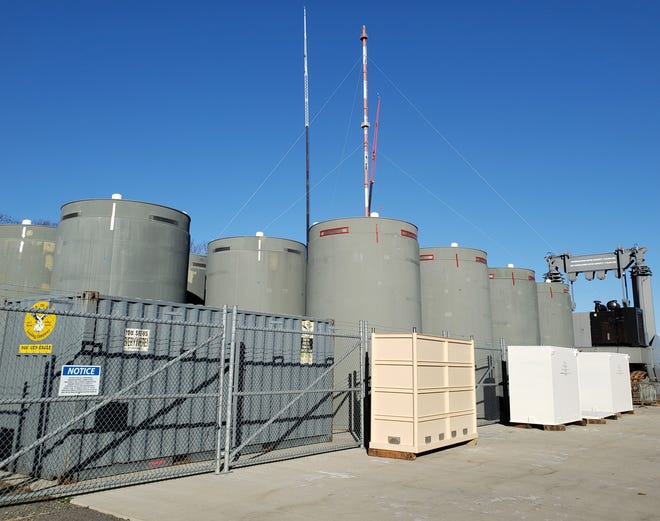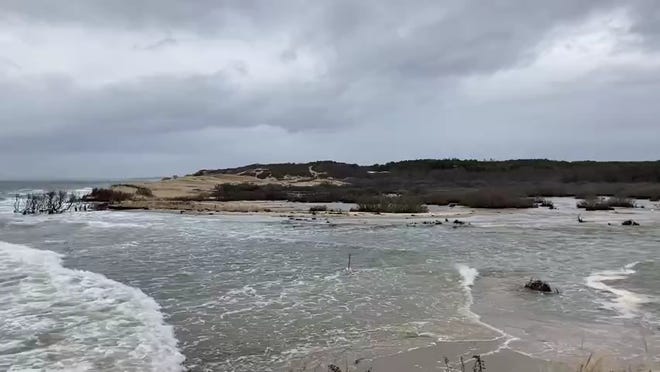PART 2
Cape town leaders oppose radioactive water release in Cape Cod Bay, in letters filed at hearing
Emergency legislation filed in January subject of April 12 joint judiciary committee hearing
CONTINUED:
“The Massachusetts seafood industry generates over $800 million annually, and that is just ex-vessel, meaning for every dollar of that, there is another three or four dollars in retail profit,” Casoni said. “As a commercial fishing organization, it gives us great concern for the larger picture here.”

James Lampert, a lawyer and member of Pilgrim Watch, agreed with Turco and Casoni. He said Holtec has two other options when it comes to discharging the contaminated water: transporting it via truck to a US Ecology site in Idaho, similar to how the now-decommissioned Vermont Yankee plant dealt with its water waste, or evaporating the water at the plant itself.
“Holtec does not need to dump this water into the bay, they have at least two other options,” Lampert said. “But both options cost more than pumping it into the bay, but Holtec can afford it.”
Lampert did recommend, however, a change in the language of the bill. In his opinion many other businesses which also use radioactive materials and discharge them safely will see the legislation as being too broad.
“We should amend the bill to ‘intentionally’ discharging radioactive waste into a protected ocean sanctuary,” Lampert said. “That would address the real problem the commonwealth is facing.”
Here's what the bill says
“No person shall directly or indirectly deposit, dispose of, or discharge, any solid or liquid radioactive material directly or indirectly: (i) in any coastal or inland waters as defined in section 1 of Chapter 131, (ii) within the rise and fall of the tide waters, or (iii) on any land owned by any other person,” the bipartisan bill reads.

If passed, the legislation would make radioactive dumping an offense punishable by a fine no more than $10,000 for the first violation and no more than $25,000 for each subsequent violation. The bill would also make whomever discharges radioactive materials liable to the commonwealth for any “damages or losses incurred” by the dumping, and to any individual who has sustained damage or loss due to the dumping on their property.
Holtec’s response
Patrick O’Brien, a spokesman for Holtec, echoed Lampert’s point, in a Friday email, that the bill will not just impact the plant, but other businesses that discharge radioactive materials.

“The bill aimed to prevent liquid effluent (water discharge) releases, treated water within state and federal limits, is one that will potentially apply not only on Pilgrim, but will also affect municipal wastewater treatment facilities, like the Town of Plymouth who discharges into the bay, agriculture, medical facilities and septic systems, as all of those release low-level radioactive materials into the sanitary sewer or waterways in the Commonwealth of Massachusetts,” O'Brien said.

No comments:
Post a Comment
Note: Only a member of this blog may post a comment.